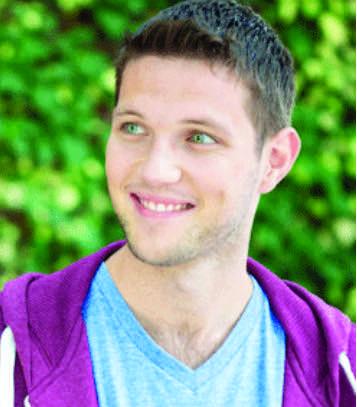February 27, 2019

Colm Keegan: “’Connecting the Celts’ is only the first installment of ‘A History of Ireland Through Song,’ so I’m sure I’ll learn some things myself in terms of how I put the presentation together. I’m very excited to be doing this, and to see where it leads.” Jade Starmore photo
Colm Keegan was born into a musical family – his father and five brothers all singers – and he has not strayed from his lineage. With a background in both traditional and choral singing, the Dublin native is best known for his nearly four-year stint with Celtic Thunder, which came after he performed as a member of the choir for Celtic Woman.
In recent years, and especially since leaving Celtic Thunder in early 2016, Keegan has devoted time to his “other” vocation, teaching: He has taught at several performing arts and secondary schools, and launched CKonLine, a forum through which he offers instruction in subjects including music theory, Irish mythology and Irish language. (He has also gotten married, to former Celtic Thunder cellist Laura Durant; the couple had their second child late last year.)
On March 4, Keegan will come to the Irish Cultural Centre of New England in Canton to present his new one-man project, “A History of Ireland Through Music,” as part of a tour winding through the Midwest and Northeast US. Shortly before embarking last month, Keegan spoke with the Boston Irish Reporter.
Q. Colm, what’s the idea behind “A History of Ireland Through Music”?
A. Well, it’s combining two things that have always been special to me: performing and teaching – I’m a classroom teacher by trade. It’s not a “gig,” and it’s not a lecture. There’s a kind of a TED Talk vibe to it, and I use an interactive presentation to help illustrate some details. The songs are an expression of the historical events, people, places and so on in the period I’m focusing on.
Q. So it’s not the whole history of Ireland?
A. No, we’d be here for days if I tried that. [Laughs] When I came up with the concept I knew that Irish history was just so vast I would have to break it up, and so I started to think about which chapter of Irish history I should concentrate on first. But I had to find songs that would, as I said, exemplify the particular era – and there aren’t any about Vikings in Ireland, so I couldn’t go back that far.
In the end, after some research, I chose the period from the 16th century to the end of the 18th century, right up to the 1798 Rebellion, which of course led to the Act of Union creating the United Kingdom. It was certainly a very eventful and significant time, and one in which the history of Ireland intersects with that of Scotland, which is why I titled this portion “Connecting the Celts”: You’ve got the establishment of the Ulster Plantation, the Irish Confederate Wars, the Jacobite Rebellion, and important figures like Owen Roe O’Neill, Bonnie Prince Charlie, Wolfe Tone. And so the songs I present include “Mo Ghile Mear (My Gallant Darling),” which is an Irish lament for Prince Charlie; “The Skye Boat Song,” another song about Charlie; and “Boolavogue,” about Fr. John Murphy and his Wexford army in the 1798 Rebellion.
These are songs that may be familiar to a lot of people, but what I’m trying to do is give some background and context, which can help explain why these songs have been so enduring. What do they say? What kind of references or other details are to be found in the lyrics? I feel it makes the music all the more enjoyable when you know those things.
Q. Did you have a special audience in mind when you put this together?
A. Well, certainly I was thinking of people who may not know a lot about Irish history; as I said, they may have heard the songs – like “The Skye Boat Song” in the “Outlander” TV series – but not know the story behind them. But even someone who is quite familiar with Irish history can get something out of this: Perhaps it will connect some dots, or give them a deeper appreciation of these events.
Moreover, I think learning about this period can help in understanding more recent history, like The Troubles, and even current events: For example, the ongoing headaches with the Irish border, as we see with Brexit.
I really wanted to reach out to the Irish-American community, so that’s why I’ll be doing “History of Ireland” at places like the Irish Cultural Centre – though of course you don’t have to be of Irish descent to attend.
“Connecting the Celts” is only the first installment of “A History of Ireland Through Song,” so I’m sure I’ll learn some things myself in terms of how I put the presentation together. I’m very excited to be doing this, and to see where it leads.
“A History of Ireland Through Song” will begin at 7:30 p.m. Keegan also will be offering an “Introduction to Irish Language” workshop at 6 p.m., and sound check admission at 5 p.m. For information on prices for the events, see irishculture.org or colmkeegan.com/tours.

